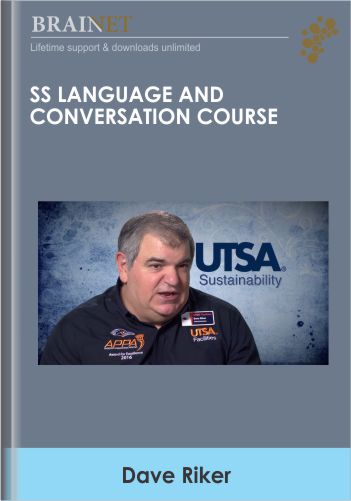$199.00 Original price was: $199.00.$59.00Current price is: $59.00.
Digital Download: You will receive a download link via your order email
Save up to 85% compared to Salepage prices. In addition, earn additional points. Save more on your next order.
Please contact email: [email protected] if you have any questions about this course.
 Purchase this course you will earn 59 Points worth of $5.90
Purchase this course you will earn 59 Points worth of $5.90 Terry Fralich – Intensive Mindfulness Training Course Interventions for Trauma, anxiety, depression, stress, sex and more
Terry Fralich – Intensive Mindfulness Training Course Interventions for Trauma, anxiety, depression, stress, sex and more
Research affirms that mindfulness is an effective clinical intervention for trauma, anxiety, depression, stress, relationship satisfaction, and more.
Yet clinicians continue to struggle with understanding how to implement mindfulness interventions into their practice.
That’s why we’re offering this intensive online mindfulness course to give clinicians like you a step-by-step guidance on how to incorporate simple, effective, and practical mindfulness interventions in your practice to help clients achieve deeper healing.
Through experiential exercises, interactive discussion, case studies, and handouts, you’ll take away practices that will enhance your current clinical approach and provide you with a mastery level understanding of the brain-changing power of mindfulness in therapy.
End this course with an advanced comprehension of mindfulness interventions for trauma, anxiety, depression, stress, sex, and more.
Maximize your clients’ capacity for change with mindfulness tools, strategies, and techniques that address the neurological processes that underlie today’s most challenging clinical conditions.
In this clinical training, author and mindfulness expert, Terry Fralich, LCPC, will guide you step-by-step through four modules of mastery-level training.
- The virality of mindfulness: Understanding what we’re actually doing
- Introducing mindfulness practice to clients
- Mindfulness as a skill-based path for enhanced transformation and change
- The circle of liberation: How formal and informal practices enhance mindfulness skills
- Neuroscience and mindfulness
- Using mindfulness as self-directive neuroplasticity to change the brain
- Interpersonal neurobiology and how attachment shapes your clients’ response to the world
- Understanding the negative side effects of adaptive safety strategies and how they impact your clients
- How mental models like core negative beliefs are formed
- The 5 core skills of mindfulness
- Clarifying, setting, and reaffirming intention
- Cultivating a witnessing awareness
- Strengthening self-regulation
- Stabilizing attention
- Practicing loving-kindness
- How to navigate between the 3 systems and 2 zones of our brain’s hard-wired survival strategies
- Understanding the 4 brain circuits that influence happiness and well-being
- Using mindfulness to stop negative emotions and thoughts
- Improving self-regulation for the foundation of unsettledness
- How to intentionally settle negative energies to shorten the time that difficult emotions keep clients stuck
- Tools to avoid emotional hijackings and bring the brain back on line
- How to implement positive visualization practices to change the brain
- Stabilizing the mind and building the foundation of focus and attention
- Strengthening the ability to hold intentional focus
- Nurturing the harmony of intention and attention
- Using mindfulness to change the negative bias of the brain’s default mode
- Understanding how to help clients set intentions for consuming digital media without triggering symptoms of anxiety, depression, stress, and more
- Utilizing mindfulness tools to practice loving-kindness
- Tools for calming the inner critic and self-judgement
- Practices for developing non-judgmental awareness and compassion for the self and others
- Developing mindful transitions and practices that stick for clients
- Implementing the 4-word daily practice
- Talking to your clients about implicit memories and how they contribute to strong and emotional responses
- Using intentional check-ins to strengthen daily mindfulness habits
- Cultivating the placebo effect to treat chronic pain, anxiety, stress, and more with mindfulness and sensory experiences
- Implementing mindfulness strategies to change the patterns of unhealthy habits
- Using metatherapeutic processing to amplify and install the positive moments of your therapeutic sessions into your client’s daily life
- Applying what you’ve learned in practice — meditation exercises to bring it all together
- Using positive visualizations
- Implementing self-regulation practices
- Developing behavioral plans for clients
- Cultivating positive experiences
- Rehearsing the stop-breath-reflect-choose practice
- Strengthening awareness of the stress response to shift to a relaxing response
- Enjoying our work with meditation practice
- …and more
About the Course Expert:

Terry Fralich, LCPC is a Licensed Clinical Professional Counselor with a private practice in Southern Maine and a former Adjunct Faculty Member of the University of Southern Maine Graduate School. He also is an attorney who practiced law in New York City, Los Angeles and Portland prior to becoming a counselor. During that time, Terry studied extensively with His Holiness the Dalai Lama, other leading Tibetan teachers and with some of the American pioneers of mindfulness. Inspired by their teachings and his own study of psychology, mindfulness and meditation, he earned a master’s degree in clinical counseling, left the practice of law and began his counseling and teaching activities. Terry is the author of The Five Core Skills of Mindfulness: A Direct Path to More Confidence, Joy and Love and Cultivating Lasting Happiness: A 7-Step Guide to Mindfulness.
Terry is a co-founder of the Mindfulness Retreat Center of Maine. He has led more than 300 seminars and retreats on mindfulness, meditation, emotional intelligence, stress reduction, and the latest developments in neuroscience. In addition, he taught mindfulness, meditation and behavioral change for six years at Maine Medical Center’s cardiac rehabilitation program and the Cancer Community Center in Southern Maine.
Financial: Terry Fralich is in private practice. He receives a speaking honorarium from PESI, Inc.
Nonfinancial: Terry Fralich has no relevant nonfinancial relationship to disclose.
Sale Page: https://catalog.pesi.com/sales/bh_c_001225_mindfulness_120117_organic-90767
Archive: https://archive.fo/wip/iOfTK
Delivery Method
Related products
Personal Development
= 43 Points
Personal Development
= 31 Points
Health and Medical
= 21 Points
Personal Development
= 62 Points
Personal Development
= 23 Points
Personal Development
‘MAGNETIC INFLUENCE’ – Magnet for Money, Charisma, Confidence! – Dani Johnson
= 63 Points
Health and Medical
= 28 Points
Personal Development
= 43 Points











